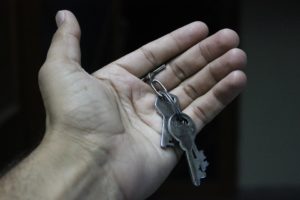There is a lot of confusion by clients relating to what property is excluded from division when a couple separates in British Columbia. This article will explain what is excluded property and how excluded property is determined.
When a couple separates, whether they were married or in a common law relationship, they have to address the issues of property division. The law surrounding property division is found in the Family Law Act. Under the Family Law Act, excluded property is protected from division and remains the property of one spouse.
Excluded property is listed in s 85(2) of the Family Law Act and includes:
- property acquired by a spouse before the relationship began;
- inheritances to one spouse;
- gifts to a spouse from a third party;
- a settlement or damage award, unless it’s compensation for a loss to both spouses or compensation for the lost income of either spouse;
- and money paid under an insurance policy, as long as the policy doesn’t insure property, and unless it’s compensation for a loss to both spouses or compensation for the lost income of either spouse.
For the purposes of the property division under the Family Law Act, the relationship began the earlier of the date the spouses married or the date the spouses began living together in a marriage-like relationship.
How Excluded Property Works
To illustrate how excluded property works, let’s look at one type of excluded property: property one spouse brought into the relationship. It’s important to note that in this type of property only the value of the property at the beginning of the relationship is excluded from division. As a result, without a marriage agreement or cohabitation agreement, any appreciation of the excluded property during the relationship is shared.
 For example, consider a relationship in which one spouse entered the relationship with a piece of land worth $100,000. When the spouses separate, that piece of land is worth $200,000. The spouse who brought the land into the relationship will be entitled to the original $100,000 and half the appreciation. This spouse is entitled to $150,000 from that land and the other spouse is entitled to $50,000. In this situation, the ex-spouses might choose to sell the land and distribute the money accordingly. Alternatively, one spouse might buy the other’s spouse’s share of the land.
For example, consider a relationship in which one spouse entered the relationship with a piece of land worth $100,000. When the spouses separate, that piece of land is worth $200,000. The spouse who brought the land into the relationship will be entitled to the original $100,000 and half the appreciation. This spouse is entitled to $150,000 from that land and the other spouse is entitled to $50,000. In this situation, the ex-spouses might choose to sell the land and distribute the money accordingly. Alternatively, one spouse might buy the other’s spouse’s share of the land.
Excluded property can be traced if excluded property is sold to purchase other property throughout the relationship. For example, let’s look at the situation where one spouse owns a condo in Vancouver at the beginning of a relationship, but sells it during the relationship and uses the money to buy a condo in Victoria. The value of the Vancouver condo at the beginning of the relationship remains the Excluded Property of the spouse who brought it into the relationship, even though he or she no longer owns that condo. If the Vancouver condo was worth $300,000 at the beginning of the relationship, $300,000 of the Victoria condo is now excluded property.
It is important to know that a spouse can unintentionally change their excluded property into family property. To see an example of a case where this happened, read the following blog post.
We hope this post helps address the confusion about excluded property. If you are interested in an agreement that will protect your excluded property during a divorce or separation, such as a prenuptial agreement or cohabitation agreement, or if you have any questions about excluded property, property settlement or family law in British Columbia, give us a call at 604-449-7779.

